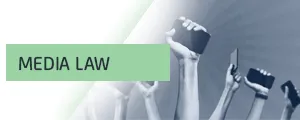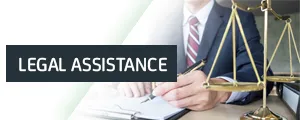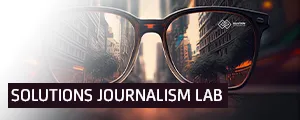The court in Karaganda: violation of media rights as a care for the jury?
In the village of Atasu, Karaganda region, civil activist Galy Baktybayev was shot dead on the doorstep of his house. It happened on the night of May 28, 2019. The final verdict of the criminals has not yet been pronounced. Once the jury acquitted them, but the sentence was reversed. On February 7 a new trial by jury began.
Obviously, such a high-profile resonant case attracted the attention of the public. And in time of online court hearings, in can learn about the case from journalists. Nevertheless Bekzat Shalgimbayev, the judge of the Specialized Interdistrict Criminal Court of the Karaganda region, allowed journalists to be present at the hearings, make audio recordings, but ... he forbade covering the trial!
The editorial board of Radio Azattyk considered the ban illegal and appealed to the Karaganda Regional Court, the Prosecutor General's Office and the Ministry of Information and Public Development. The Prosecutor General's Office sent a letter to the regional prosecutor's office, that has not still replied, the Ministry took a pause, and the regional court considered the ban lawful. It believed that information in the media "can build up prepossession and influence the the jurors’ opinion about this case that caused a wide public response." The author of this words is R. Nurmagambetov, the acting chairman of the regional court. He also referred to the difficulties in selecting jurors.
"Adil soz" comments:
Sure, one can understand the difficulties of choosing the jury - but the restriction of publicity have nothing to do with it. The law does not stipulate restriction of publicity in order to protect jurors from information that may influence their opinion.
Lawyer Sergey Utkin analyzes this incident from the standpoint of the law:
If we carefully study the articles of the Сriminal procedure code related to issues of publicity during the criminal trials, in particular, articles 29 and 345, as well as the Normative Resolution of the Supreme Court No. 25 of December 6, 2002 "On compliance with the principle of transparency of proceedings in criminal cases", we will come to the following conclusions:
1. Restriction of publicity in criminal proceedings is possible only "for the purpose of protecting state secrets, preventing disclosure of information about intimate aspects of the life of persons involved in the case, ensuring the safety of victims, witnesses and other persons, members of their families or close relatives, protecting the interests of juvenile defendants" (paragraph 6 of the Regulatory Resolution).
As it follows from the letter of the Karaganda regional Court, in this case the judge limited publicity "in connection with the consideration of this case with the participation of jurors ... because they [articles in the media] "can build up prepossession and influence the jurors’ opinion." The restriction of publicity was aimed at things that are not directly stipulated in law, and, consequently, the judge had no right to restrict publicity to achieve this aim.
2. The legislation clearly stipulates certain ways to limit publicity in criminal proceedings: consideration of the case in a closed court session, restriction of photo, audio and video recordings. The judge has no right to use any other means of limiting the publicity of the trial. For example, a judge does not have the right to order any of the participants in the process or those present to close their eyes for a while and not look, plug their ears, stop making notes in a notebook, a judge does not have the right to prohibit those present in an open court session from disclosing the information received there (discussing it with friends, on social networks), etc.
In this case, the judge, as follows from the letter of the Karaganda Regional Court, "forbade the journalists involved in the case to publish information about the circumstances of the case and the trial until the hearings are over." This method of restricting publicity is not provided for by law, therefore, the judge had no right to apply it. Moreover, the fact that journalists present at open court sessions are forbade to publish information about the hearings (the Karaganda Regional Court mistakenly called journalists participants in the case) does not prohibit them from simply telling (not publishing) information about the circumstances of the case and the trial to other persons (including other journalists). And the judge's ban does not apply to them. Other persons (other than journalists) can tell someone the specified information, and the information will be published absolutely legitimately anywhere. That is, this method of restricting publicity is not only illegal, but also absolutely ineffective.
In general, it turns out that the law strictly restricts the purposes when a judge has the right to hold a closed court session Paragraph 2 of the Regulatory Decree obliges the courts to "prevent facts of unjustified refusal to citizens to be present in the courtroom". In this case the judge totally discredited those rules and restrictions. He formally ensured open hearings, he let the journalists to be present in the courtroom, but in fact he conducts close hearings in the presence of journalists who are prohibited from performing their professional duties. Well, if it's not a mockery of the law, then what is it? And the most important question - why does the judge act so clumsily, and not clearly announce closed session? The thing is that he understands perfectly well that he has no legal grounds for closed hearings!
And it is also very important to note that if is the Supreme Court follows the steps of the Karaganda Regional Court and enshrines this precedent, then all criminal trialы by jury in Kazakhstan (and these are mostly high-profile cases of particularly serious crimes) will turn into in fact closed hearings without legal grounds. If this is not another brazen attack on the rights of society, on the principle of transparent and open judicial proceedings enshrined in the laws, then what is it? Maybe it was a "trial balloon" that will be used in order to conduct closed hearings of cases of the January rioters.
I believe that the judge’s order, forbidding journalists to cover an open court session, clearly shows signs of an offense provided for in Part 2 of Article 158 of the Criminal Code (Interfering with legal professional activity of journalist committed by person with the use of his (her) official position by coercion him (her) to refuse to dissemination of information), and in the actions of the acting chairman of the Karaganda regional Court have the signs of complicity in the specified offense.





